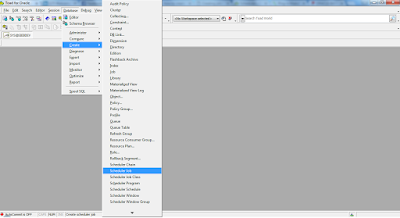Linux Miscellaneous but important commands
To find help on some topic :
[root@SLES /]# man pwd
or
[root@SLES /]# info pwd
Also you can seek for a particual keyword ( say: umask) in the man pages by:
[root@SLES /]# man -K umask
To find a file in the /usr directory, use:
[root@SLES /]# find /usr -name “*.doc”
To find files and directories owned by the group students in the /usr directory, use:
[root@SLES /]# find /usr -group students
Assuming a user left the organization and the files owned by his account name must be found and deleted for security reasons, use :
[root@SLES /]# find / -user Shaheer -exec rm '{}' ';'
Want to perform some quick mathematical calculations, use:
[root@SLES /]# bc
To set up date and time as 16 Jan 2000 17:35 you should use:
[root@SLES /]# date 0520173503
To synchronize it with the hardware clock, use:
[root@SLES /]# hwclock –-systohc
To check for memory and swap space usage, you can use:
[root@SLES /]# free
or
[root@SLES /]# top
To check the system load status averages and the uptime:
[root@SLES /]# uptime
To check when the system was booted last time:
[root@SLES /]# who -b
To check the status of a particular service:
[root@SLES /]# service sendmail status
or
[root@SLES /]# /etc/rc.d/init.d/sendmail status
To check the status of all services:
[root@SLES /]# service –-status-all
Sometimes symbolic links to files are broken, eg assuming link file is deleted or some file is over written on it. To create a symbolic link for the /boot/grub/menu.lst file in the /etc directory as grub.conf use:
[root@SLES /]# ln -s /boot/grub/menu.lst /etc/grub.conf
If you want to know the SLES version, read the file /etc/SLES-release or /etc/issue
[root@SLES /]# cat /etc/SLES-release
[root@SLES /]# cat /etc/issue
uname commands
[root@SLES /]# uname -p
[root@SLES /]# uname -m
[root@SLES /]# uname -i
[root@SLES /]# man pwd
or
[root@SLES /]# info pwd
Also you can seek for a particual keyword ( say: umask) in the man pages by:
[root@SLES /]# man -K umask
To find a file in the /usr directory, use:
[root@SLES /]# find /usr -name “*.doc”
To find files and directories owned by the group students in the /usr directory, use:
[root@SLES /]# find /usr -group students
Assuming a user left the organization and the files owned by his account name must be found and deleted for security reasons, use :
[root@SLES /]# find / -user Shaheer -exec rm '{}' ';'
Want to perform some quick mathematical calculations, use:
[root@SLES /]# bc
To set up date and time as 16 Jan 2000 17:35 you should use:
[root@SLES /]# date 0520173503
To synchronize it with the hardware clock, use:
[root@SLES /]# hwclock –-systohc
To check for memory and swap space usage, you can use:
[root@SLES /]# free
or
[root@SLES /]# top
To check the system load status averages and the uptime:
[root@SLES /]# uptime
To check when the system was booted last time:
[root@SLES /]# who -b
To check the status of a particular service:
[root@SLES /]# service sendmail status
or
[root@SLES /]# /etc/rc.d/init.d/sendmail status
To check the status of all services:
[root@SLES /]# service –-status-all
Sometimes symbolic links to files are broken, eg assuming link file is deleted or some file is over written on it. To create a symbolic link for the /boot/grub/menu.lst file in the /etc directory as grub.conf use:
[root@SLES /]# ln -s /boot/grub/menu.lst /etc/grub.conf
If you want to know the SLES version, read the file /etc/SLES-release or /etc/issue
[root@SLES /]# cat /etc/SLES-release
[root@SLES /]# cat /etc/issue
uname commands
[root@SLES /]# uname -p
[root@SLES /]# uname -m
[root@SLES /]# uname -i



Comments
Post a Comment